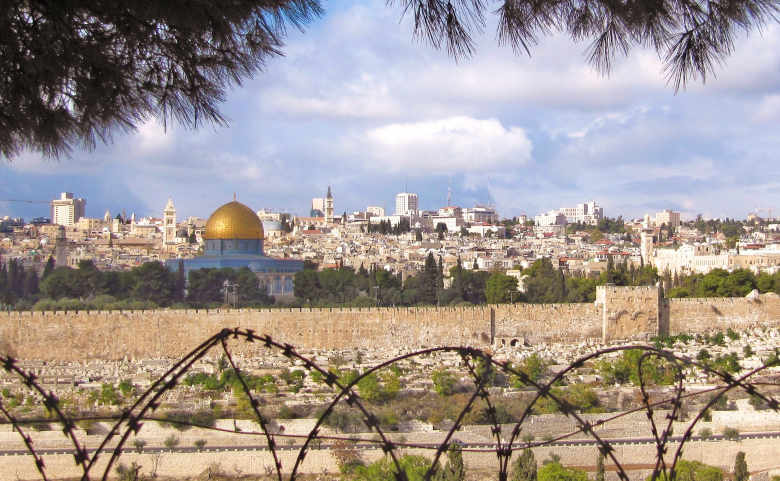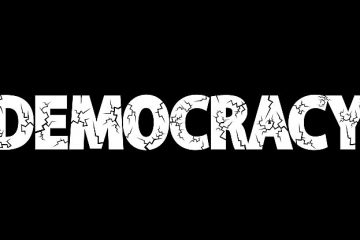Peace in the Middle East?


Last week we witnessed one of the greater achievements in international relations. The President of the United States of America was able to broker an agreement for the establishment of full diplomatic relations between the State of Israel and the United Arab Emirates. The UAE is only the third Arab country to do so, and the only one in the past 26 years.
We simply cannot undervalue this success for the two conservative Presidents Donald Trump and Benjamin Netanyahu, as well as for Crown Prince Sheikh Mohammed bin Zayed Al Nahyan. President Trump has improved his international relations resumé by brokering a historic deal in arguably the most complicated region in the world. President Netanyahu can claim that he also succeeded in gaining formal recognition for Israel by another Arab country. Mohammed bin Zayed, by taking assertive actions, sets up the UAE to be a regional leader on par with the Kingdom of Saudi Arabia. But how did we get here?
Mohammed bin Zayed’s desire to buy fighter jets from the United States met no resistance from Prime Minister Yitzhak Rabin in the early 90’s. That deal provided a “sense of trust” between the countries and the Crown Prince “did not care” that the fighter jets contained Israeli technology. In 2018, Miri Regev, Minister of Culture and Sport, became the first Israeli to visit Abu Dhabi in an official government capacity. She observed a judo tournament during which the Israeli national anthem was being played.
This official visit to UAE was soon followed by Ayoub Kara, Minister of Communications and Yisrael Katz, Minister of Foreign Affairs. Then an Etihad Airways airplane, bearing its official logo, landed in Tel Aviv carrying humanitarian medical equipment for battling Covid-19 from UAE for Palestine; the aid was refused by the Palestinian Authority on the pretext that the deal had been done between Israel and the UAE without their involvement. Last week the State of Israel and the United Arab Emirates established full diplomatic relations with the support of President Trump, facilitated by Jared Kushner, his Senior Advisor and son-in-law.
The Palestinian Authority is less than enthusiastic about the newfound Israel-UAE diplomatic relationship. Mahmoud Abbas, in a sign of protest, recalled the Palestinian Ambassador to UAE, called for an emergency session of the Arab League, has urged other Arab nations not to follow the UAE’s example and asked the Organization of Islamic Cooperation to reject the agreement. This deal requires that Israel halt the annexation of parts of the West Bank. The UAE is presenting that argument to the PA and the rest of the Arab League as a win for Palestinians. The PA once again has found itself in a tight spot because it heavily relies on financial support from the Gulf States, who are shifting their priority towards neutralization of hostile Iran and away from hostilities with Israel.
Now that the phone lines work, airlines have direct flights, and the passports are recognized between Israel and UAE, what is next on the horizon for Israel and the Arab countries? This pattern is expected to be pursued by several Gulf States, Bahrain and Oman being among the most likely to follow in the UAE’s footsteps. However, the home of the holiest Islamic sites and the largest economy in the region, the Kingdom of Saudi Arabia, is the regional heavyweight and every country in MENA is waiting to see how it is going to act.
It is extremely unlikely that Riyadh will instantly follow its regional ally, the UAE, and officially recognise Israel. However, Israel-KSA relations will improve very soon. Whether its neighbours publicly agree or not, Israel is a world leader in science and technology, innovation, research and development, as well as other vital fields. and therefore, is a desirable partner. In Saudi Arabia, Crown Prince Mohammed bin Salman is implementing an incredibly ambitious Vision 2030 economic diversification plan.
The most prized attraction of Vision 2030 is Neom, a tremendously expensive future megacity. Due to the location of the intended city on the west coast, close to the Israeli resort city of Eilat, the Saudis need peace and cooperation with Israel. Furthermore, the Kingdom needs Israeli expertise and know-how in the areas of production, biotechnology and IT to help make this vision a reality. Vision 2030 combined together with Kushner’s statement “that Saudi Arabia and Israel will have fully normalized relations” are indicators that something interesting is coming out of the MENA geopolitical arena.
This article was originally published for Conservatives Global.



0 Comments